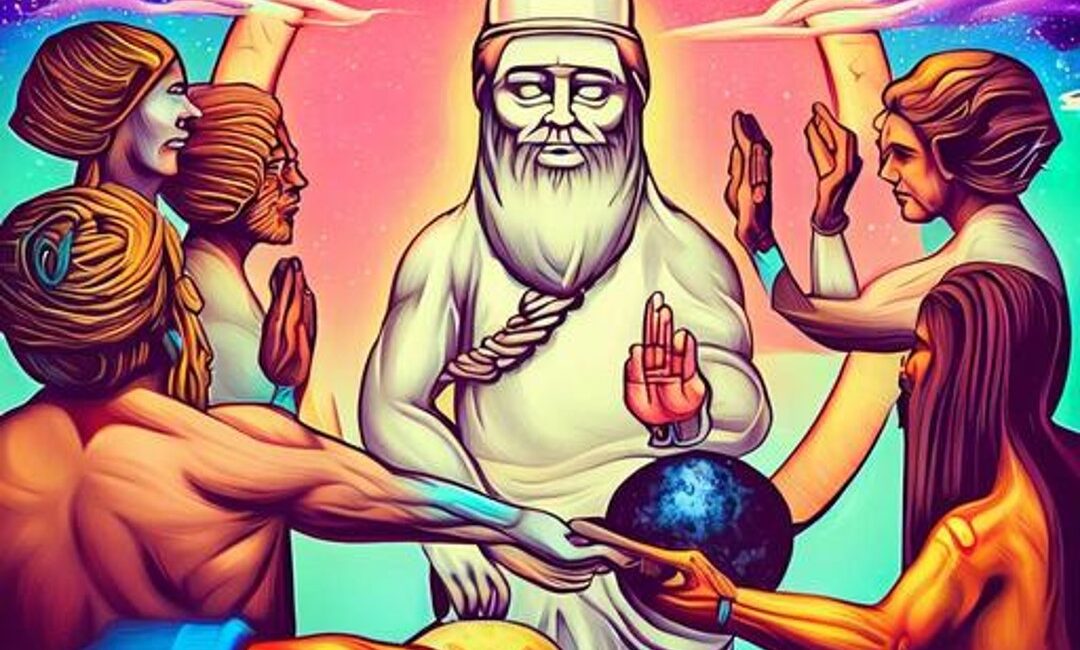Introduction: The concept of God has been a subject of profound contemplation and speculation throughout human history. Theories about the existence and nature of God have been formulated by various cultures, religions, and philosophers, leading to a diverse range of perspectives and beliefs. This essay aims to provide an overview of the theory of God, examining different philosophical and theological viewpoints, exploring arguments for and against the existence of God, and delving into the complexities and debates surrounding this profound and deeply personal topic.
Historical Perspectives: Humanity’s belief in the divine can be traced back to ancient civilizations and their mythologies, where gods and goddesses were worshipped as the embodiment of supernatural powers. From the polytheistic beliefs of the Greeks and Romans to the monotheistic traditions of Judaism, Christianity, and Islam, history is replete with diverse conceptions of God, each reflecting the cultural, social, and religious context of its time.
Philosophical Approaches: Numerous philosophers have grappled with the question of God’s existence and nature. René Descartes, in his Meditations on First Philosophy, argued for the existence of God based on the idea that a perfect being must exist to account for the existence of imperfect beings. Thomas Aquinas, influenced by Aristotle, proposed the “Five Ways” as rational arguments for God’s existence, including the cosmological, teleological, and moral arguments.
Immanuel Kant, on the other hand, emphasized the limitations of human reason in understanding God. He posited that God’s existence and nature lie beyond the realm of empirical knowledge, instead requiring a leap of faith or practical reason. This idea laid the foundation for the philosophical concept of agnosticism, asserting that the existence of God is unknowable or inherently beyond human comprehension.
Theological Perspectives: Theological perspectives on God vary greatly across religious traditions. Monotheistic faiths generally assert the existence of a singular, transcendent, and omnipotent God who created and governs the universe. Polytheistic beliefs, on the other hand, posit the existence of multiple gods and goddesses with specific domains of influence.
Furthermore, different religious traditions offer diverse conceptions of God’s nature, characteristics, and relationship with humanity. Some view God as an all-loving and merciful being, while others emphasize God’s justice and judgment. Mystical traditions often advocate for a direct and personal experience of God, transcending intellectual theories and doctrines.
Arguments for and against the Existence of God: The debate regarding the existence of God has been a recurring topic in philosophical and theological discourse. Several arguments have been put forth both in favor of and against the existence of a divine being.
The teleological argument, also known as the argument from design, posits that the intricate order and complexity observed in the universe suggest the existence of an intelligent creator. Similarly, the cosmological argument asserts that the existence of the universe necessitates a cause or first mover, which is identified as God.
Conversely, the problem of evil poses a challenge to the notion of an all-powerful and all-good God. If God is omnipotent and benevolent, why does evil and suffering exist in the world? This question has prompted the development of theodicies, which seek to reconcile the existence of evil with the concept of a loving God.
Debates and Controversies: The theory of God continues to be a subject of intense debate and controversy. Atheism, agnosticism, and skepticism challenge the existence of God, often relying on scientific explanations and a lack of empirical evidence. Philosophical movements such as existentialism have explored the implications of a world without God and the human quest for meaning and purpose.
Additionally, religious pluralism and interfaith dialogue have fostered discussions on the nature of God and the relationship between different religious traditions. The existence of diverse conceptions of God raises questions about religious tolerance, truth claims, and the potential for a unified understanding of the divine.
The theory of God encompasses a wide array of perspectives, theories, and debates. From historical and cultural contexts to philosophical arguments and religious beliefs, the concept of God is a deeply personal and complex topic that touches upon existential questions, ethics, and the human search for meaning. Ultimately, whether one believes in God, questions God’s existence, or adopts an agnostic stance, the exploration of this theory invites us to delve into the profound depths of human thought, spirituality, and the nature of our existence.

